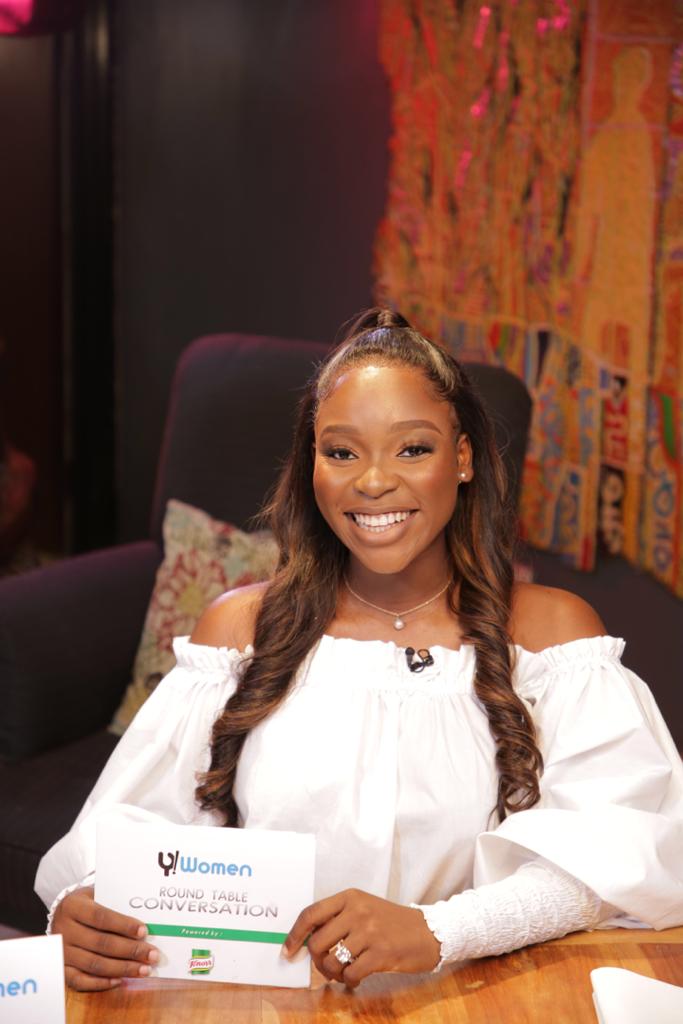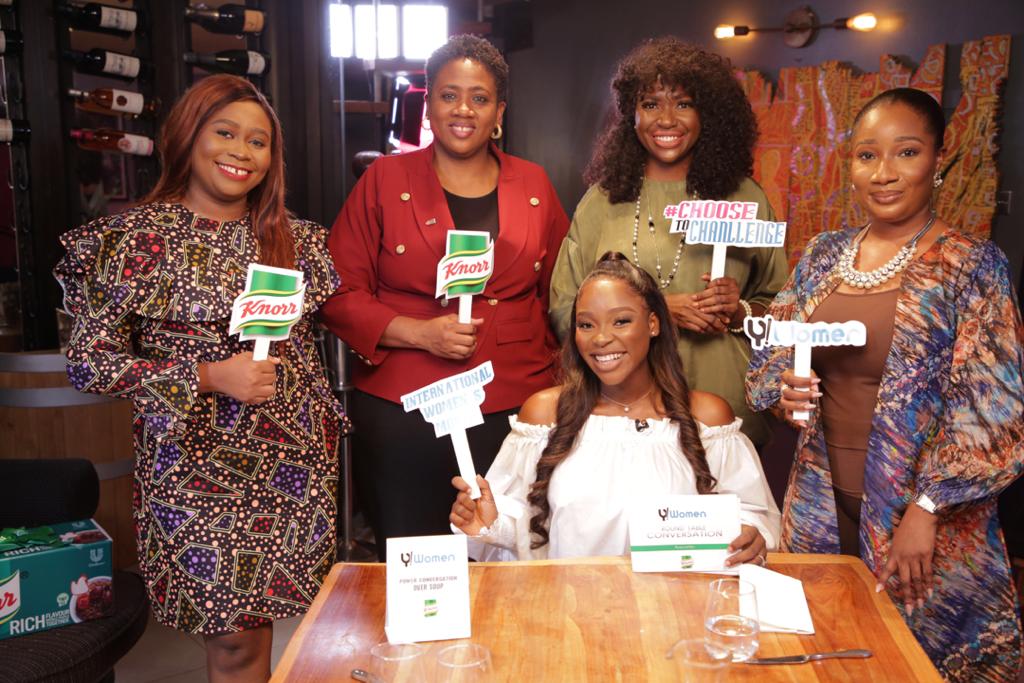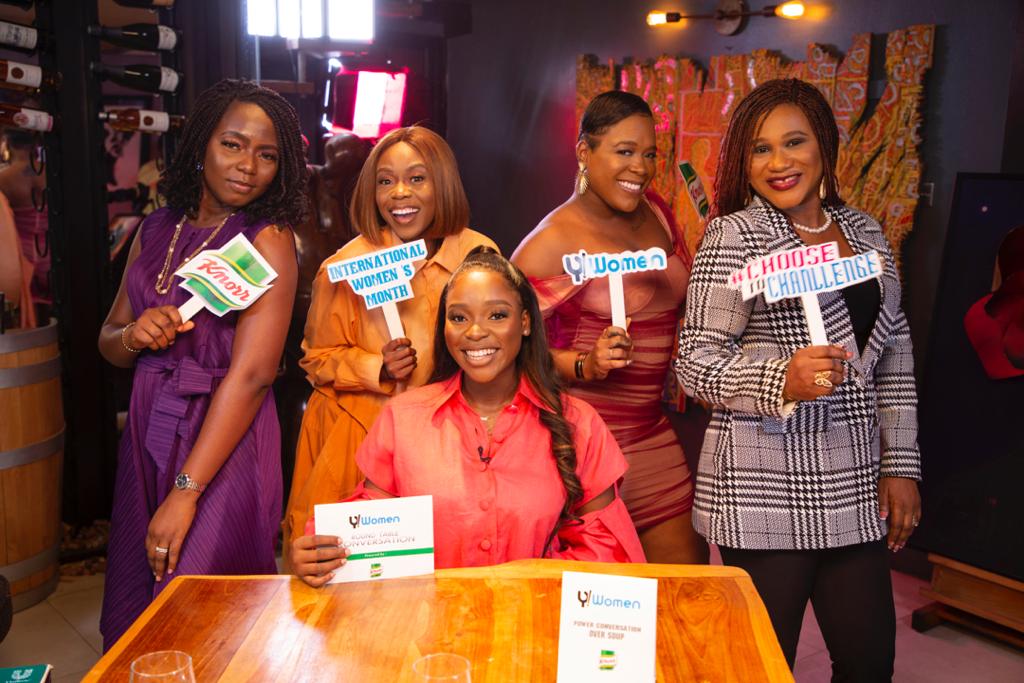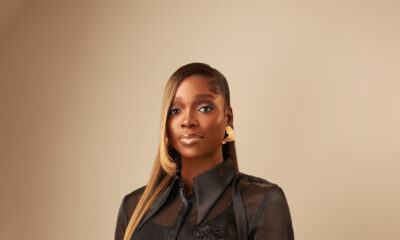Events
Here are 10 Key Take-aways from Knorr’s month-long #IWM2021 Celebrations

Gender stereotypes have existed within Nigerian society longer than anyone can remember. They have constantly shown up in various forms while growing up; in television commercials, nursery rhymes, textbooks, and even within the home.
However, an increasing number of women have refused – and are still refusing – to conform to these social gender norms and are lending their voice to educating the rest of the world.
To celebrate this year’s International women’s day, leading seasoning brand Knorr has taken a step to spotlight some of these non-conformist women in a month-long television special.
Hosted by Tomike Adeoye, the conversation featured 12 phenomenal women in different subject areas ranging from femininity and sexuality to tokenism and patriarchy. Here are ten exciting things learned from the enlightening conversations with some of Nigeria’s extraordinary women.

- Men have a part to play – It seems like the world has made some progress in the struggle for a more inclusive world. However, there is still a lot to be done – majorly because of some men’s lack of participation in gender equality conversations. While some men are uninterested, some others are completely unaware of the privileges they enjoy as men and cannot understand the challenges women face. According to Moet Abebe, Media personality, Soundcity TV/Radio, “More education needs to be afforded to men, and it should start from our mothers. They should train men to know about things like consent while we also encourage them in their learning process.”
- Every woman should define their femininity – The definition of femininity has evolved, going from being about dresses, long hair, and other complex things like submission to being independent, outspoken, and kind, and compassionate. Despite society’s thoughts and beliefs on what women should be in terms of dressing and appearance, women must understand that femininity is less about rules and more about the freedom to be who they truly are. For Tele Aina, Founder of Waziki Life, she asks herself. “What works for me and what am I trying to achieve?” when it comes to unleashing her femininity.
- The art of silencing women – through subtle – still exists – Male hostility toward women’s participation in public discourse is far more common today than many of us are likely to be aware. Sumbo Adeoye – the founder of the Inspiring Change Initiative, believes that “the culture of silencing women is something that is not written, but yet it is practiced widely especially in Nigeria or in Africa as a whole”.While some women have learned to speak up, many others have unfortunately gotten used to being interrupted, talked over, or otherwise marginalized, especially in the workplace.

- Challenging outdated stereotypes is a powerful driver of gender equality – Women must continue to beat cultural biases and create their own spaces at the table. Cultural Gatekeeper Olufisayo Bakare quoted a famous quote, “Well-behaved women never make history”. She also added that “It is essential to create your mic and podium because no one will do it for you. No one is going to build the table for you, so you have to take opportunities wherever you deem fit”.
- “Silence encourages bad behavior” – Tele Aina – When women go through traumatic situations, they rarely ever speak up about it for fear of stigmatization. However, speaking about it helps the opposite sex understand just how grave what they go through is and encourages others to speak up. Men and women, by biological design, don’t go through similar challenges the same way; hence, if women speak up about how certain situations affect them, men would be able to understand and join in the conversation.

- It’s time for society to change the narrative – Rather than go for tokenism, it is time for us to change the way women are perceived, primarily through the media and traditional education. If we do not do this, “women will not be able to grow because they are mere figureheads to make the organization look good,” said Elizabeth Onyeama, Clinical weight loss practitioner. We need to start portraying women as achievers. This will help give young girls vivid pictures of female role models. Ezinne Ezeanu, Founder of SheCan Foundation, added that “As women when you see an opportunity, we are to take it. If we do not, we would not see women where it matters”.
- Safe havens are necessary – Safe spaces give women a place to share their ideas without fear of repercussions. Funmi Abiola, head of marketing Masila Motors, believes that “Women need safe spaces in organizations to make complaints when facing any form of discrimination based on their gender.” In doing this, organizations can encourage women to speak up. Fiyin Toyo – Marketing Manager (East and West Africa); GlaxoSmithKline, also added that “while it is great for organizations to use the International Women’s day to hear from the women in their organization, the conversation needs to be ongoing beyond the International Women’s Day celebration”.
- What progress is – No country has been able to bridge the gender gap altogether. While there has been an increase in advocacy for more inclusion, there’s still a long way to go. However, to define what progress is in gender equality as it relates to women, we need to check fundamental progress indicators such as how many women there are in leadership positions. Rolake Akingbade-Filani, CCO, Mixta Africa pushes that, “progress will be in how we will no longer have to say, ‘this is the first woman to do something’. Instead, we pick a sector of the economy and find a list of women who have crossed that milestone”. Dr. Chioma Nwakanma, Health &Wellness Expert, and Ijeoma Ofonagoro, Director Reboot, on the other hand, believe that “progress can be measured in the change in the mindset of our parent’s generation”.

- Women must challenge the practice of tokenism – Tokenism works in a way where a minority group of people is given something – a position or title – only to prevent criticism and give the appearance that they are being treated fairly. As women, “we have to keep challenging the system of tokenism instead of accepting the little we are offered”, said Maureen Kabrik, Entrepreneur. Challenge the system and challenge the status quo.
- Patriarchy is harmful to men as well – Patriarchy is not only detrimental to women but also men. For one, it does not breed for men to be vulnerable because of the toxic notion of who a man should be. Rolake Akingbade-Filani, CCO, Mixta Africa, posited that “patriarchy prevents men and women with beautiful differences, which are strengths, from working together in perfect harmony“. Hence, we should preach humanity over patriarchy.
The roundtable conversations powered by Knorr Nigeria were an entertaining and educative reminder that everyone has a role to play in creating inclusive spaces in every aspect of society.
——————————————————————————————————————————————————————————————————————————————-Sponsored Content





















